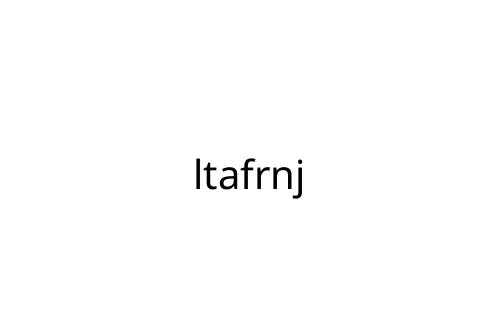Why Journaling Matters
Journaling builds a deeper understanding of yourself by helping you process thoughts and emotions. Writing provides clarity, allowing you to identify patterns in your behavior and decision-making. For instance, reviewing entries may reveal recurring triggers for stress or highlight progress toward personal goals.
Journaling improves mental well-being by reducing stress and organizing overwhelming thoughts. Expressing emotions in a private space fosters emotional release, creating a sense of relief. Studies from the Journal of Experimental Psychology indicate that expressive writing can alleviate anxiety and enhance mood.
Journaling enhances productivity by structuring tasks and prioritizing goals. A simple to-do list or bullet journal entry helps break large objectives into manageable actions. For example, I use my journal to outline daily tasks, ensuring focus on what’s essential.
Journaling preserves memories by documenting moments and milestones. Descriptive entries of events, achievements, or reflections retain details that might otherwise be forgotten. These records serve as personal archives, offering insights and nostalgia when revisited.
The Benefits Of Journaling
Journaling offers numerous advantages that can significantly impact daily life. It creates a space for reflection and growth, fostering mental, emotional, and practical benefits.
Enhancing Mental Clarity
Journaling helps clarify thoughts by turning abstract ideas into tangible words. When I write about my worries, plans, or goals, I often notice patterns I hadn’t seen before. This process eases mental clutter, leading to better decision-making. Studies show structured writing boosts cognitive processing and reduces overthinking, making it essential for clear-minded problem-solving.
Boosting Emotional Well-Being
Putting emotions into words provides an outlet for stress and frustration, leading to emotional release. When I document my feelings, it helps me understand triggers and manage overwhelming emotions. Research by APA indicates expressive writing reduces anxiety and depression, improving overall mood. Journaling promotes self-compassion, as it encourages understanding rather than judging one’s feelings.
Improving Productivity And Focus
Daily journaling sharpens focus by helping prioritize tasks and organize time. When I write a to-do list or reflect on achievements, I stay motivated and productive. It creates a roadmap for action, allowing me to address tasks with clarity. By identifying distractions and setting clear goals, journaling enhances my efficiency in completing essential work.
Encouraging Personal Growth
Reviewing past journal entries reveals growth and areas for improvement. I use journaling to track progress in habits, skills, or life projects. It fosters self-awareness, as consistent reflection leads to greater understanding of values and aspirations. Research highlights that journaling boosts personal development by helping individuals align with goals and overcome challenges more effectively.
Types Of Journaling Practices

Journaling offers diverse methods to suit individual needs and preferences. Each practice provides unique benefits, making it easier to align with personal goals and lifestyles.
Gratitude Journaling
Gratitude journaling focuses on acknowledging and appreciating positive aspects of life. I write about three to five things I’m thankful for each day, such as a meaningful conversation or a beautiful sunset. This practice helps reframe my mindset toward positivity and reduces stress. Research from Harvard Health suggests that practicing gratitude can improve emotional well-being and strengthen relationships.
Bullet Journaling
Bullet journaling is a customizable system combining planning, task management, and creative expression. I use sections like daily logs, habit trackers, and goal lists to organize my life efficiently. For instance, habit tracking helps me monitor activities like exercise or water intake. This method enables me to stay productive and visually track my progress while incorporating creativity through doodles or designs.
Reflective Journaling
Reflective journaling encourages deeper contemplation to:
- explore thoughts
- emotions
- experiences.
I analyze significant events or daily interactions by answering prompts like “What worked well today?” or “How did I handle a challenge?” This practice promotes self-awareness by identifying patterns and understanding emotional responses, leading to personal growth and greater clarity.
How To Start Your Daily Journaling Practice
Starting a journaling practice involves simple steps that can be customized to your lifestyle. Focusing on the right tools, routine, and mindset ensures consistency and long-term success.
Choosing The Right Tools
Selecting the right tools makes journaling enjoyable and accessible. I recommend a notebook or digital app that resonates with your preferences. For instance, a lined notebook works well for detailed entries, while unlined pages support creative sketches. Popular digital options like Day One or Evernote offer synchronization and organization features. Comfortable pens or styluses ensure effortless writing, which helps maintain the habit.
Setting A Convenient Routine
A consistent routine makes journaling a natural part of daily life. I schedule my practice at a time when distractions are minimal—mornings for setting intentions or evenings for reflection. Allocate 5-10 minutes initially to build momentum. I keep my journal in a visible location, such as a bedside table, to remind me of my commitment. Linking journaling with existing habits, like enjoying coffee or unwinding before bed, reinforces the routine.
Overcoming Common Challenges
Addressing common obstacles ensures journaling stays rewarding. If inspiration is lacking, I use prompts like “What am I grateful for today?” or “What was a memorable moment this week?”. For time constraints, short entries or bullet points suffice without compromising effectiveness. When motivation wanes, I revisit previous entries to reflect on personal growth, which keeps me encouraged. I embrace imperfection, focusing on expression rather than polished writing.
Tips For Maintaining Consistency
- Set a Dedicated Time
I commit to journaling at the same time daily to create a habit. Scheduling this practice in the morning or before bed minimizes interruptions and makes it part of my routine. - Keep Journaling Supplies Accessible
I place my journal and pen or device in a visible spot, ensuring they’re easy to grab. Seeing them regularly reminds me to write, even on busy days. - Start Small
I write for 5-10 minutes initially, focusing on consistency over duration. Short sessions prevent overwhelm and make journaling more manageable. - Use Prompts When Stuck
Prompts like “What made me smile today?” or “What’s one thing I learned?” help me write even when I feel uninspired. They keep the process flowing without overthinking. - Track Progress
I mark off journaling days on a calendar or track streaks in an app. Small milestones motivate me to stay consistent and celebrate my commitment. - Focus on the Benefits
I remind myself of journaling’s impact on my emotional clarity, stress relief, and growth. Recalling these benefits reinforces my dedication to the practice. - Embrace Flexibility
I adjust timings or formats when my schedule shifts. The key is adapting, not abandoning, ensuring the habit stays intact.























































































































































































































































































































































































































































































































































































































































































































































































































































































































































































































































































